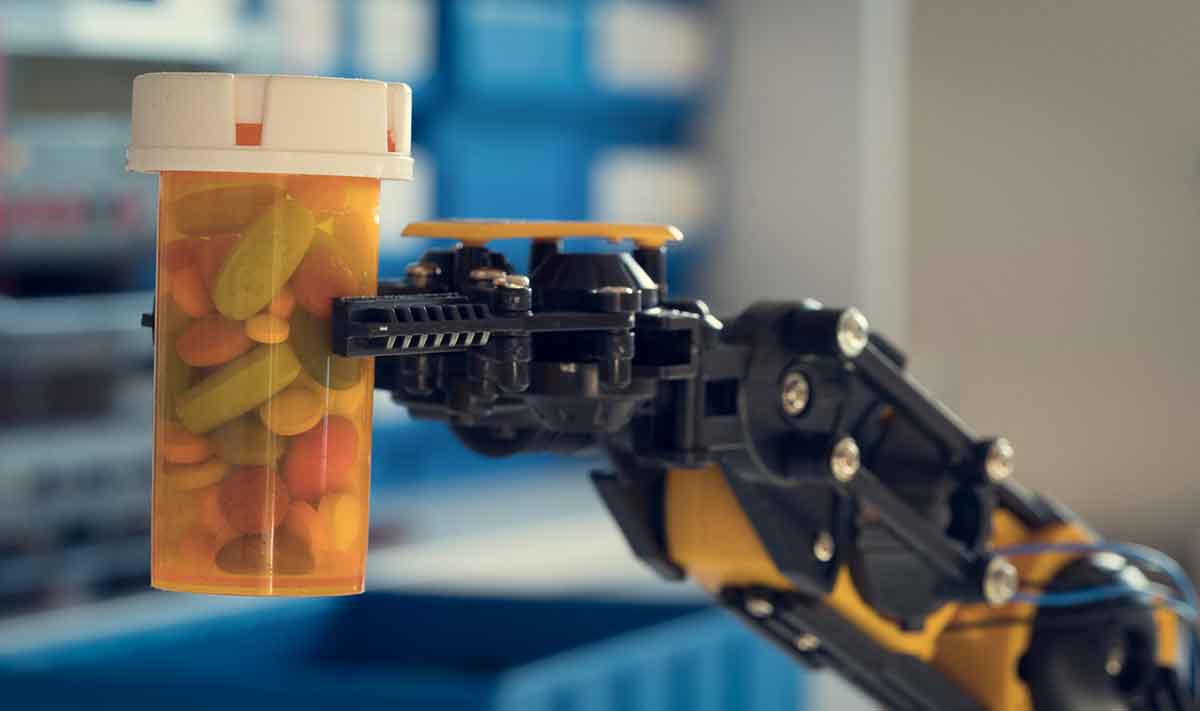
Aug 31, 2022
Blog Digital World They’re taking over the world? | The burgeoning trend of Pharmacy Automation
When we look to the future we see a world in chrome, with robots tutoring our children and driving our cars. Of course, in 2022, these predictions aren’t far off, and artificial intelligence (AI) technology has been implemented in most industries in some form or another.
The medical industry is probably one of the first industries that springs to mind when we think of robots in a non The Matrix way. We have a slight understanding of the many robots and automations that have changed the landscape of medicine and surgery for the better. Automation isn't a particularly new trend across the pharmacy industry. However, it is more recently that this market has entered a new evolution, with integration throughout the western world occurring steadily.
Pharmacy automation refers to the mechanical process of distributing and handling medications. In general, the tasks that technologies can take over in a pharmacy setting are those such as:
There are two general segments the market falls under: inpatient and outpatient. The products included in the inpatient pharmacy automation market are things like automated medication labeling systems, barcode scanning systems, narcotics management equipment, tablet splitters and compounding systems. In the outpatient market, the products used are counting and vial shredders, packaging and filling equipment, and dispensing/ storage equipment.
Pharmacy automation essentially works double time in place of a human doing the labor. Reduced wait times and, of course slashed labor costs is an incentive any business would want, but are initial start-up expenses restraining the market from reaching its full potential?
The current surge in the pharmacy automation market stems from assimilating traditionalists to the AI game. Manufacturers of pharmacy automation equipment have shifted their marketing efforts to facilities that host pharmacy services such as hospitals, long-term care homes, and retail pharmacy chains. These suppliers are also targeting privately or family-owned pharmacies in a bid to expand the market globally. With many manufacturers in the market, competitive costs have since made the integration of automated systems within reach to the smaller businesses that require them.
Accounting for 60.4% of the global market, the US stacked up an impressive, total revenue of $3.4 billion for pharmacy automation in 2020 alone. The global market for pharmacy automation is hefty, with a compound annual growth rate of 9.4% and expected to reach $9.9 billion by 2026, - the industry is offering something that organizations need.
Looking at the market drivers, a clear pattern forms in the way businesses adopt automation. With a focus on productivity and a reduction in human errors, the factors responsible for growth in the market include:
With the constant change and development of technology, it’s no surprise that pharmacies are adopting a more digital production line. In the fickle world we live in, there is always room for growth and change, which for a competitive market like pharmacy automation, opens opportunities for further expansion.
The opportunities for the market, which will arise throughout the forecast period include:
So, they’re not really taking over the world…Yet!
The pharmacy automation market has set clear expectations for its future goals to take over the pharmacy industry. With a steady incline in revenue and many factors aiming to get the market to $9.9 billion by 2026, the next few years will be crucial in automation being endorsed by all pharmacy facilities.
To read more from the BCC analysts on the pharmacy automation market, click here to download your complimentary copy of the report overview or to purchase the full report.
Become a BCC member and have a hub of industry-specific reports at your hands. Chat with a member of our team to discuss the benefits today.

Katie Biddle joined BCC Research as a junior copywriter in 2022 and works within the marketing team. Prior to BCC, she recently graduated with a BA in Creative Writing and English Literature from Westminster University.

From smartphones to satellites, antennas play a vital role in enabling the seaml...

Introduction Artificial Intelligence (AI) and the Internet of Things (IoT) are r...

We are your trusted research partner, providing actionable insights and custom consulting across life sciences, advanced materials, and technology. Allow BCC Research to nurture your smartest business decisions today, tomorrow, and beyond.
Contact UsBCC Research provides objective, unbiased measurement and assessment of market opportunities with detailed market research reports. Our experienced industry analysts assess growth opportunities, market sizing, technologies, applications, supply chains and companies with the singular goal of helping you make informed business decisions, free of noise and hype.